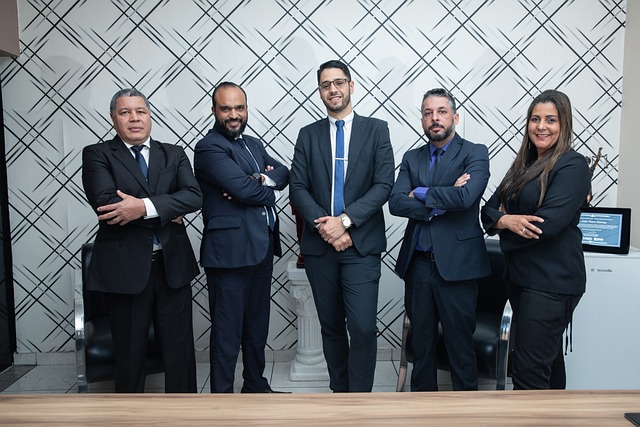
Category: Littleton Colorado Civil Rights Attorneys
Littleton Colorado Civil Rights Attorneys: Navigating Legal Landscapes for Equality
Introduction
Welcome to an in-depth exploration of a crucial aspect of the legal realm: Littleton Colorado Civil Rights Attorneys. This article aims to dissect and demystify the role these attorneys play in upholding and advancing civil rights within the context of Littleton, Colorado, and its broader implications globally. By delving into various facets, we will uncover the significance, challenges, and future potential of this specialized field.
Understanding Littleton Colorado Civil Rights Attorneys
Definition:
Littleton Colorado Civil Rights Attorneys are legal practitioners who specialize in advocating for the protection, promotion, and enforcement of civil rights as guaranteed by federal and state laws. They focus on ensuring equality, justice, and fair treatment for individuals and communities across various social and economic spectrums.
Core Components:
- Civil Rights Legislation: These attorneys work within a framework of civil rights laws, including but not limited to anti-discrimination statutes, voting rights acts, and equal protection clauses.
- Legal Representation: They represent clients in court proceedings, administrative hearings, and negotiations, fighting for their rights against various forms of discrimination and injustice.
- Public Interest Law: Many Littleton attorneys are driven by a passion for public interest law, taking on cases that may not yield substantial financial rewards but significantly impact societal change.
- Community Engagement: They often collaborate with local community organizations, educational institutions, and advocacy groups to foster awareness and promote civil rights initiatives.
Historical Context:
The roots of civil rights attorneys can be traced back to the Civil Rights Movement in the 1950s and 60s, where legal challenges played a pivotal role in dismantling racial segregation and discriminative practices in the United States. Over time, this field has evolved to encompass a broader range of issues, including gender equality, disability rights, LGBTQ+ advocacy, and religious freedom.
Significance:
- Guarding Democracy: Littleton Colorado Civil Rights Attorneys are instrumental in safeguarding democratic principles by ensuring that all citizens have equal access to justice, participation in the political process, and protection from state-sanctioned discrimination.
- Promoting Social Justice: They challenge societal norms and discriminatory practices, fostering a more inclusive and just society where everyone’s rights are respected and upheld.
- Legal Expertise: These attorneys provide specialized knowledge and skills, navigating complex legal systems to secure favorable outcomes for their clients.
Global Impact and Trends
International Influence:
The impact of Littleton Colorado Civil Rights Attorneys extends far beyond Colorado’s borders. International human rights laws and global initiatives have created a network of shared goals and standards, influencing local legal practices worldwide. For instance, the United Nations’ Universal Declaration of Human Rights serves as a cornerstone for civil rights legislation globally, guiding the work of attorneys advocating for universal equality.
Global Trends:
- Increasing Global Awareness: Growing international awareness of civil rights issues has led to more cross-border collaboration and shared strategies among legal professionals.
- Emerging Markets: In developing nations, there is a rising demand for civil rights advocacy as these countries navigate their unique challenges related to poverty, ethnic conflicts, and social inequality.
- Digital Advocacy: The digital age has enabled global connectivity, allowing attorneys to collaborate virtually and access international case law, thus enhancing their expertise.
Regional Disparities:
Despite global progress, regional disparities persist. Some areas may have more robust civil rights frameworks and enforcement mechanisms, while others struggle with limited resources, political resistance, or cultural barriers. For instance, countries in Western Europe often lead in equality legislation, whereas certain regions in Africa and Asia face challenges due to traditional norms and weak legal systems.
Economic Considerations
Market Dynamics:
The civil rights attorney market is dynamic, influenced by factors such as societal shifts, legislative changes, and economic conditions. In periods of social unrest or political upheaval, there may be an increase in demand for these attorneys’ services, leading to market growth. Conversely, during times of perceived stability, the market might experience fluctuations.
Investment Patterns:
Law firms specializing in civil rights often attract investors seeking socially responsible opportunities. Impact investing, which prioritizes positive social and environmental outcomes alongside financial returns, is gaining traction in this sector. Such investments can provide the resources needed to take on high-impact cases and advocate for systemic change.
Economic Systems and Civil Rights:
Civil rights attorneys contribute to economic systems by promoting equality and accessibility. Their work can lead to more diverse and inclusive markets, fostering innovation and growth. For example, advocating for equal employment opportunities can attract a broader talent pool, enhancing a region’s economic competitiveness.
Technological Advancements
Impact of Technology:
Technology has revolutionized the civil rights attorney’s toolkit:
- Legal Research: Online legal databases and research tools enable efficient access to case law, legislation, and scholarly articles, streamlining the research process.
- Client Communication: Video conferencing, secure messaging apps, and email facilitate remote communication with clients, expanding accessibility.
- Document Management: Cloud-based document management systems improve efficiency, collaboration, and file organization.
Emerging Technologies:
- Artificial Intelligence (AI): AI-powered tools assist in legal research, contract analysis, and predictive analytics, potentially reducing the time attorneys spend on mundane tasks.
- Blockchain: This technology offers secure and transparent record-keeping, which could enhance transparency in legal processes and voting rights applications.
- Data Analytics: Advanced data analytics can identify patterns of discrimination, helping attorneys build stronger cases and inform policy decisions.
Challenges Faced by Littleton Attorneys
Legal Complexities:
Civil rights law is intricate and constantly evolving, posing challenges for even the most experienced attorneys. Staying abreast of changing legislation and judicial interpretations requires continuous professional development.
Resource Constraints:
Many civil rights cases are pro bono or taken on with limited resources, making it difficult to dedicate sufficient time and effort without adequate compensation. This can impact the quality of representation.
Public Perception:
Despite their best efforts, attorneys may face criticism or resistance from segments of the public, especially when advocating for controversial issues like immigration reform or LGBTQ+ rights. Building support and fostering understanding are ongoing challenges.
Systemic Barriers:
Deep-rooted societal biases and discriminatory practices can hinder progress, making it difficult to achieve meaningful change. Attorneys must navigate these systemic barriers while advocating for their clients’ rights.
Future Potential and Initiatives
Specialization and Collaboration:
The future of Littleton Colorado Civil Rights Law may lie in greater specialization within the field. As issues become more nuanced, attorneys with specific expertise can provide targeted solutions. Collaboration between different legal disciplines and community organizations will be essential to tackling complex challenges.
Technology-Driven Change:
Embracing new technologies will continue to shape the practice of civil rights law. AI, data analytics, and blockchain have the potential to streamline processes, enhance client services, and provide powerful tools for advocacy.
International Cooperation:
Global collaboration among legal professionals can lead to the development of innovative strategies and best practices. International conferences, workshops, and knowledge-sharing platforms can facilitate this exchange, ensuring that civil rights attorneys worldwide stay at the forefront of progressive lawyering.
Community Engagement:
Attorneys can play a vital role in community development by offering pro bono services, conducting legal clinics, and educating the public about their rights. Building strong community partnerships will strengthen the impact of their work.
Conclusion
Littleton Colorado Civil Rights Attorneys are integral to creating a just and equitable society, both locally and globally. Their specialized skills, combined with technological advancements and international collaboration, position them as agents of positive change. While challenges persist, the future holds promise for enhanced legal representation, more effective advocacy, and a deeper impact on civil rights issues worldwide.









